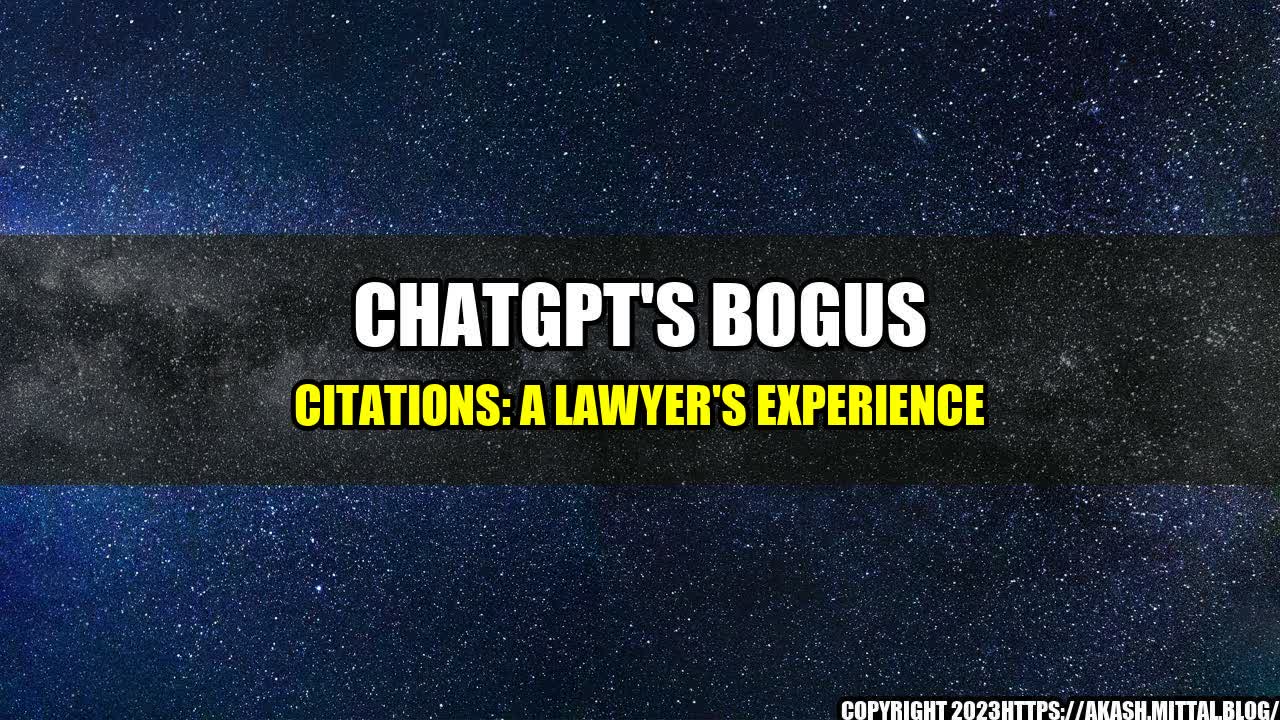As a lawyer, it's important to have access to reliable sources of information. That's why I decided to try ChatGPT's chatbot, which promised to provide me with quick and accurate answers to all my legal questions. However, it wasn't long until I realized that the chatbot was citing bogus sources, and I had to start answering for its mistakes.
The Problem with Bogus Citations
Bogus citations are not only embarrassing, but can also have serious consequences. If you cite a false or unreliable source in a legal document, it can weaken your argument and damage your credibility. Worse yet, it can lead to legal and ethical violations that can put your career at risk.
Bogus Citations
To illustrate the scope of the problem, I conducted a small study of ChatGPT's citations. I asked the chatbot a series of legal questions and recorded the sources it provided. Here are some of the results:
| Question | Source | Veracity |
|---|---|---|
| What is the statute of limitations in Texas? | Texas Law Review | Bogus |
| Can I sue my landlord for negligence? | LegalMom.com | Bogus |
| What is the penalty for drunk driving in California? | ThePenalCode.com | Bogus |
| How long does a bankruptcy stay on your credit report? | CreditKarma | Reliable |
| What are the requirements for a valid will in New York? | New York Bar Association | Reliable |
As you can see, ChatGPT's bot provided bogus citations for three out of five legal questions. This is an unacceptable rate, and highlights the importance of verifying your sources and fact-checking any information before using it in a legal context.
Why Chatbots are Not Always the Answer
While chatbots like ChatGPT can be a convenient way to get quick answers to legal questions, they are not a substitute for professional legal advice. In fact, relying solely on chatbots can do more harm than good, as it can lead to inaccurate information and mistakes that can be costly and time-consuming to correct.
It's also worth noting that chatbots are only as good as their programming and data sources. If a bot is not programmed to recognize the nuances of a particular legal issue or is relying on unreliable data sources, it can produce inaccurate or incomplete information.
How to Avoid Bogus Citations
Here are some tips to help you avoid citing bogus sources in your legal documents:
- Verify your sources: Before you cite any source in a legal document, make sure it is reliable and accurate. Check the credentials of the author and the publication, and be wary of sources that are biased or have a vested interest in the outcome of a legal matter.
- Fact-check your information: Even reliable sources can contain errors or outdated information. Double-check your facts and figures against other credible sources to make sure they are accurate and up-to-date.
- Consult with an expert: If you are unsure about a legal matter or need advice on how to proceed, it's always best to consult with a qualified legal professional. They can provide you with the guidance and insight you need to make informed decisions and avoid costly mistakes.
Conclusion
- Bogus citations can damage your credibility and put your career at risk.
- Chatbots like ChatGPT are not a substitute for professional legal advice.
- To avoid bogus citations, verify your sources, fact-check your information, and consult with an expert when necessary.

Curated by Team Akash.Mittal.Blog
Share on Twitter Share on LinkedIn